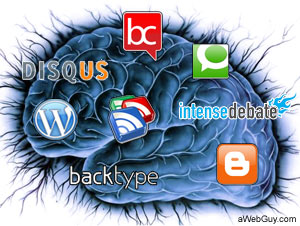
Search engine optimization can be a pretty deceitful field. There are a lot of challenges to the SEO every day which can make us look bad as an industry. SEO is a very lucrative field, which makes it prone to excessive competition and it is frequently a target for fraud. The fraud can happen on both sides; from the SEO, as well as from the client. I have a couple ideas on the topic, and I hope this will benefit you, whether as the SEO or the potential SEO client.
Considering that the SEO professional has to look over his or her shoulder at all times, there should be little wonder why even the best SEO with good abilities and intentions can come off as shady. After all, anybody who feels suspicious all the time can appear suspicious, themselves. This suspicion of SEO services prompted me to question how we must seem to potential customers when they read the SEO contracts, proposals, project scope, retainer agreements, engagement letters, needs analysis, non-disclosure agreements, and etcetera.
Many SEO proposals and SEO contracts that I have read lean toward being a bit ambiguous and one-sided. I am “guilty” of this, too, and I have even heard it from clients in my decade plus in this field. What is sometimes hard to overcome are some of the reasons the SEO contracts are ambiguous … and why sometimes they should be.
What to Include in SEO Proposals
The question of what to include in the SEO proposal is a tough one. I think a lot of SEO must have felt that little pang of uncertainty after they have crafted a brilliant SEO proposal and present it to the prospective client. Some of the questions the SEO may ponder are whether the prospective client is just using it to try and implement the proposed work internally, using the SEO proposal to shop around, or even stealing the brilliant work to provide the proposal to their shady SEO who was too lazy or incompetent to do the research themselves. I suspect that every good SEO is cheated at least once.
How much can you include in the SEO proposal before the client thinks they can implement it themselves (which seldom works well for them), and how little can you include in the SEO proposal, yet still convey a high value? There should be a balance, but my approach has often been to just put all the cards on the table and give them the gold. The problem here is that so many people view SEO as a science (see “Search Engine Optimization (SEO) – Art or Science?“). Clients do not always realize that SEO implementation is not created equally, and there is also an artistic side to SEO. There are many degrees to doing the job right, and even the same strategy implemented by two different SEO will yield different results. After a potential client ends up hanging themselves on that rope you give them, they lose faith in you and even the whole prospect of hiring out SEO services.
The other side of the coin is to show very little strategy in the SEO proposal but provide a lot of proof. In this case, it may look like the SEO strategy is weak and not show enough value. Proof of concept and SEO case studies are fine, but many people cannot relate that into their world due to inherent doubts about SEO.
What to Include in SEO Contracts
A great SEO proposal must be backed up with a great SEO contract. Putting too much information in the SEO contract can have the same results as with the SEO proposal, but worse, this time you are asking them for a signature and money. Leaving any ambiguity may look unprofessional or dishonest, but making it too rigid comes with a risk of not being able to provide the right responses the client needs under changing market circumstances. Just imagine the contract that says exactly what the SEO will do, but then you find an instance where market changes say that you should do something different.
The SEO contract can be a deal-breaker, especially if it is going before a board of directors with a bunch of people who do not have a clue about SEO, or marketing at all for that matter. When you have a company filled with a bunch of people doing all they can to be sure they still have a job tomorrow (most companies), the last thing you want is for them to vote something down just because they didn’t understand what they were approving. This applies to small companies and large, and even a one-person company has a “board” of sorts.
Consider What the SEO Contract Represents
Everybody wants to avoid a lawsuit. It may sound too simple, but let’s look at what the SEO contract really represents. It is a contract that says that the customer agrees to pay “x” money in exchange for “y” services. If everything goes just as planned, and everybody involved is on the up and up, the contract should actually be a very useless piece of paper. Looking at it this way, you can see that the contract is mostly in place solely to make everybody comfortable in case it has to go to a court to be upheld. This is the bottom line with a contract. It is really useless as an instrument unless or until it is contested by one party and is brought to a courtroom or mediation.
With the purpose of the contract in mind, it should be easier to prepare your agreements in a way that addresses these basic components of “x” money for “y” service. A lot of the fluff beyond that is mostly there to address irrational fears. Not all of it, but this is the case with much of the content in most of the SEO service contracts I have read.
I have spent a significant amount of money having contracts reviewed and prepared over the years. I recall something one of my attorneys once said when I asked him to review one of the contracts I used for my customers. He said that the contract looks great, but that he could not “bless” the contract, and for that I would need a priest. He went on to say that any contract is only as good as the people signing it or in the worst case, the judge who makes a ruling on it. Looking at it this way, I may suggest that you just be sure to use waterproof ink before you splatter it with holy water.
SEO Espionage is an Irrational Fear
To the SEO: Collaboration between SEO is great, but sometimes the SEO has to know when to watch his or her back. Right? Well, the answer is yes and no. Most of the time the fear is irrational. I know that many SEO have used my work to build upon their services and their knowledge base. They have used my contracts, my proposals, and they have used SEO espionage to take food from my kids’ mouths. Should I concentrate on that, or the fact that I have done my little piece by using integrity and ideas to make the industry stronger?
I place providing value to the industry very high. I have been giving away information and putting my ideas out here on the Internet since the 1990’s and somehow people still pay attention. They flock to things like my very old article on h1 tags, and constantly find me when searching for SEO contracts. Being useful and providing value is a good thing … a very good thing. When you look over your shoulder with fears that somebody will get a leg up on you, it is easy to miss the big picture. There are enough SEO clients out there, and even if somebody takes your prized prospect away, there is always another one better suited to be your client.
A better way to look at it is that if you are working with a good spirit of collaboration between SEO, the whole industry becomes stronger. When the industry becomes stronger, your business becomes stronger. The market for good SEO will never be saturated. Really, pay attention: “The market for good SEO will never be saturated.”
Why SEO Contracts Don’t Matter

If contracts were ever a deal breaker, it should be with the credit card industry. If people actually read everything they agree to by using a credit card, spending habits would surely be a whole lot different, and the credit card industry may not even exist. It is not because they are all that bad, but reading the contract can be a bit scary.
Think about this and tell me if you can relate. I have purchased a lot of things over the years. I love buying stuff! When I think about the things I wanted the most, I recall that I barely even paid attention to the contracts. I already knew that I wanted to buy, I had a pretty good idea of who I was dealing with, and I knew that I would not have the “thing” I wanted until I signed the contract.
An extreme example is when I purchased the house I live in. I went to the closing at about 4:00 p.m. and signed about a squillion contracts by the close of business. I did this with little more than a brief explanation from my real estate agent of what I was signing. If you have ever purchased real estate, you surely know what I mean. Your hand probably got cramped before you were done, right? Now consider whether you read and scrutinized every line of those contracts.
As I consider the people who signed contracts with me over the years, I recall that some of the happiest ones barely even scanned through it. They had an absolute faith in my work, my integrity, and they wanted the help that I can provide them. The ones who got hung up on fine details of the SEO contract simply did not have that faith in me. I had failed them long before it was time to sign the contract.
I hope that you will consider this, whether as a prospective SEO client or the SEO provider. Getting the job right and having a signed contract is really the last thing that should matter. Gaining the client’s trust should never come down to the contract, but rather all of the gains that the SEO contract represents.
SEO Contract Examples
If you would like sample SEO contracts, proposals, or other documents, just leave me your comment here on my blog. Let me know what you think of the matter, and what kind of document you need help with. If I have something I believe will be useful to you, I will post an example here in the comments. If you can provide some input to help others, whether as SEO or client, add your piece. Collaboration is a good thing, and usually a whole lot more useful than coming off as shady to avoid somebody stealing your work.


